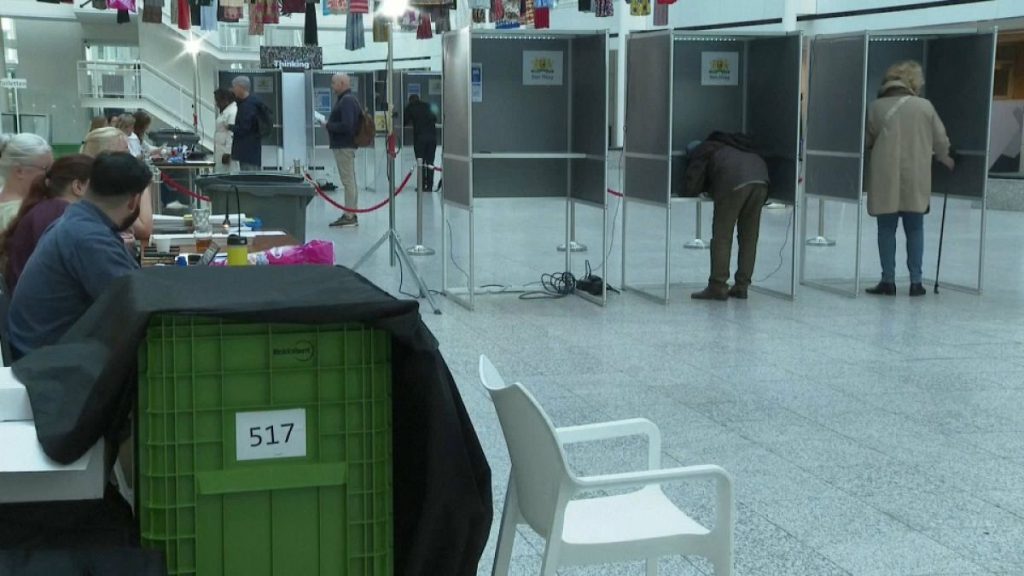Polls have opened in the Netherlands as the European Union parliamentary elections begin, with 27 member states heading to the polls over four days. The far-right is projected to make significant gains in the elections, with polling showing Geert Wilders’ Party for Freedom likely to build on its popularity. Wilders’ party won a landslide victory in the Netherlands six months ago, becoming the biggest force in the national parliament. The surge of populist, far-right, and extremist parties across Europe over the past five years has led to the rise of these parties in government and governing coalitions in several EU nations.
The European Parliament elections will see almost 400 million voters elect 720 members, with the results impacting a wide range of issues including global climate policies, defense, migration, and geopolitical relations with China and the United States. In the Netherlands, Wilders’ party could potentially overtake the combined Labour Party and Green Left, particularly with support from farmers who have protested against EU legislation. Wilders, who has previously called for the Netherlands to leave the EU, is now advocating for change from within the EU if his party gains more support. This strategy mirrors plans of many other hard-right parties across the EU.
The Netherlands is the first EU country to start its single-day vote early, with Ireland following on Friday and the rest of the EU nations voting over the weekend. The results of the elections will be announced on Sunday night after all states have completed voting. The outcome of the elections will shape the direction of the European Parliament and have far-reaching implications for the EU as a whole. The rise of far-right parties and populist movements across Europe has raised concerns about the future of the EU and its policies on various issues.
The surge of far-right and populist parties in recent years has disrupted the traditional political landscape in many EU nations, with these parties gaining momentum and support among the electorate. Issues such as migration, globalization, and sovereignty have fueled the rise of these parties, with voters seeking alternatives to mainstream political parties. The impact of these parties on EU policies and decision-making processes could lead to significant changes in the way the EU operates and engages with its member states.
The European Parliament elections are crucial for the future direction of the EU, as the results will determine the composition of the parliament and its priorities over the next five years. The rise of far-right parties and their potential impact on EU policies and relationships with other global powers will be closely watched by EU member states and international observers. The outcome of the elections could shape the future of the EU and its role in the world, as well as influence the domestic politics of member states.
Overall, the European Parliament elections are a significant moment for the EU and its member states, as they will determine the direction of the EU’s policies and priorities for the next five years. The rise of far-right and populist parties across Europe has reshaped the political landscape and will likely have a lasting impact on the EU’s decision-making processes. The Netherlands’ early voting and the projected gains for the far right indicate a shift in the political dynamics within the EU, with potential implications for the future of the union and its relations with other global players.












